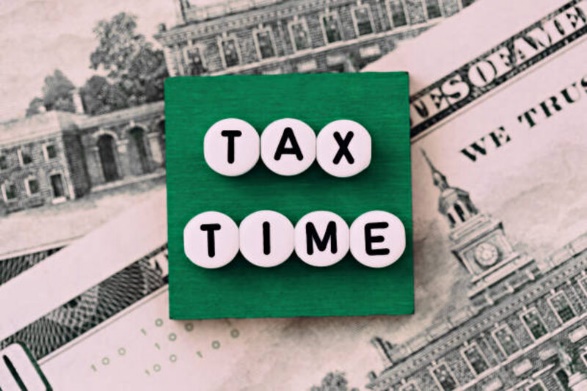Are you looking for ways to legally reduce or avoid taxes on your 401(k) withdrawals? While it's possible, it requires careful planning and understanding of tax laws. In this blog post, we'll delve into the different strategies that can help you save money on taxes when withdrawing funds from your 401(k). You'll learn about the pros and cons of each option as well as the legal implications of tapping into these retirement savings accounts before reaching official retirement age. By developing a tailored plan that meets both your long-term goals and current needs, you'll be able to make an informed decision so you can maximize your financial security in retirement without worrying about hefty fines.
Understand the Basics of 401(k) Withdrawals:
Before you start looking into tax strategies to benefit from, it's important that you understand the basics of 401(k) withdrawals. Your contributions to a 401(k) are typically made on a pre-tax basis, meaning your original investments in the plan will be taxed when you withdraw them. Additionally, any money withdrawn before age 59 ½ is subject to an additional 10% early withdrawal penalty. It's also important to note that taxes must still be paid on all withdrawals regardless of the method used and no strategy will offer complete tax avoidance.
Rollover Your 401(k) Funds Into an IRA:

One popular way to reduce or avoid taxes is by rolling over your 401(k) funds into an Individual Retirement Account (IRA). This type of rollover allows you to keep your money in a tax-advantaged retirement account and if done correctly, there won’t be any taxes or penalties due when you transfer the funds. It's important to note that IRA contributions can also be taxed, depending on the type of plan you use.
Take Advantage of 401(k) Loan Provisions:
Another way to avoid triggering taxes and penalties is by taking advantage of loan provisions. If your 401(k) plan allows it, you may take up to 50% of your vested balance (up to $50,000) out as a loan that must be paid back over five years with interest. While this option doesn't give you access to more money than what you already had, it does allow you to avoid taxes and penalties associated with early 401(k) withdrawals.
Make a Qualified Charitable Distribution:
If you are over 70 ½ years old, you can make a qualified charitable distribution (QCD) from your IRA or Roth IRA account. This type of withdrawal allows you to donate $100,000 directly to a qualified charity without paying income tax on the withdrawal. If done correctly, this can be an effective way to reduce your taxable income while still giving back to your favorite cause.
Tap Into Social Security Benefits:
Another strategy for legally avoiding taxes on 401(k) withdrawals is tapping into Social Security benefits. You may be able to take advantage of spousal or survivor benefits, for example, to reduce the amount of taxes due on your withdrawal. Alternatively, you can wait until you reach full retirement age (66-67) to start collecting Social Security and minimize any potential tax liability.
Take Advantage of Tax Advantaged Accounts:
Finally, investing in tax-advantaged accounts such as Roth IRAs and health savings accounts can help you reduce or avoid taxes on 401(k) withdrawals. These types of accounts allow you to contribute after-tax money that grows tax-free and will not be subject to taxes when withdrawn if certain criteria are met. This type of planning works best when done over a long period of time so it's important to take into account all details before making any decisions.
Utilize Roth Conversions to Avoid Taxes on Your Withdrawal :

Roth conversions are another way to reduce or avoid taxes on 401(k) withdrawals. This strategy involves converting a portion of your traditional IRA or 401(k) into a Roth account. Any funds transferred into the Roth will be subject to taxes but the subsequent earnings and withdrawals from this account will not be taxed. It's important to consider the long-term implications of such a conversion before making any decisions as it might have an effect on eligibility for Social Security benefits and other retirement accounts.
Look into Other Options for Paying Lower Taxes on Your Retirement Savings:
Finally, there may be other options available to lower the taxes on your 401(k) withdrawals. If you are over age 70 ½ and have a traditional IRA or 401(k), you may be able to make a Qualified Charitable Distribution (QCD) which allows you to donate $100,000 directly to a qualified charity without paying income tax on the withdrawal. You can also look into other retirement accounts such as Roth IRAs and health savings accounts that allow for contributions and withdrawals that are not taxed.
Conclusion:
When it comes to legally avoiding taxes on your 401(k) withdrawals, there are several strategies available. From taking advantage of loan provisions to utilizing Roth conversions, it's important to understand the implications of each strategy in order to make an informed decision that is tailored to your financial needs and long-term goals. It's also wise to consult with a tax professional or financial advisor if you're unsure about any aspect of these strategies. With careful planning, you can ensure your retirement savings are maximized while still saving money on taxes.
FAQs:
Can i avoid tax penalty on 401k withdrawal?
Yes, there are several strategies you can use to avoid or reduce the tax penalty on 401k withdrawals, such as rolling over your funds into an IRA and utilizing Roth conversions. Additionally, if you are over 70 ½ you may be able to take advantage of Qualified Charitable Distributions which allow for tax-free donations $100,000.
How can i get my 401k money without paying taxes?
If you are over 59 ½ you may be able to withdraw funds from your 401k without paying taxes. Additionally, if you rollover your 401k into an IRA or utilize Roth conversions, the money withdrawn will not be subject to income tax. However, it's important to note that taxes and penalties may still apply depending on the withdrawal strategy used.




